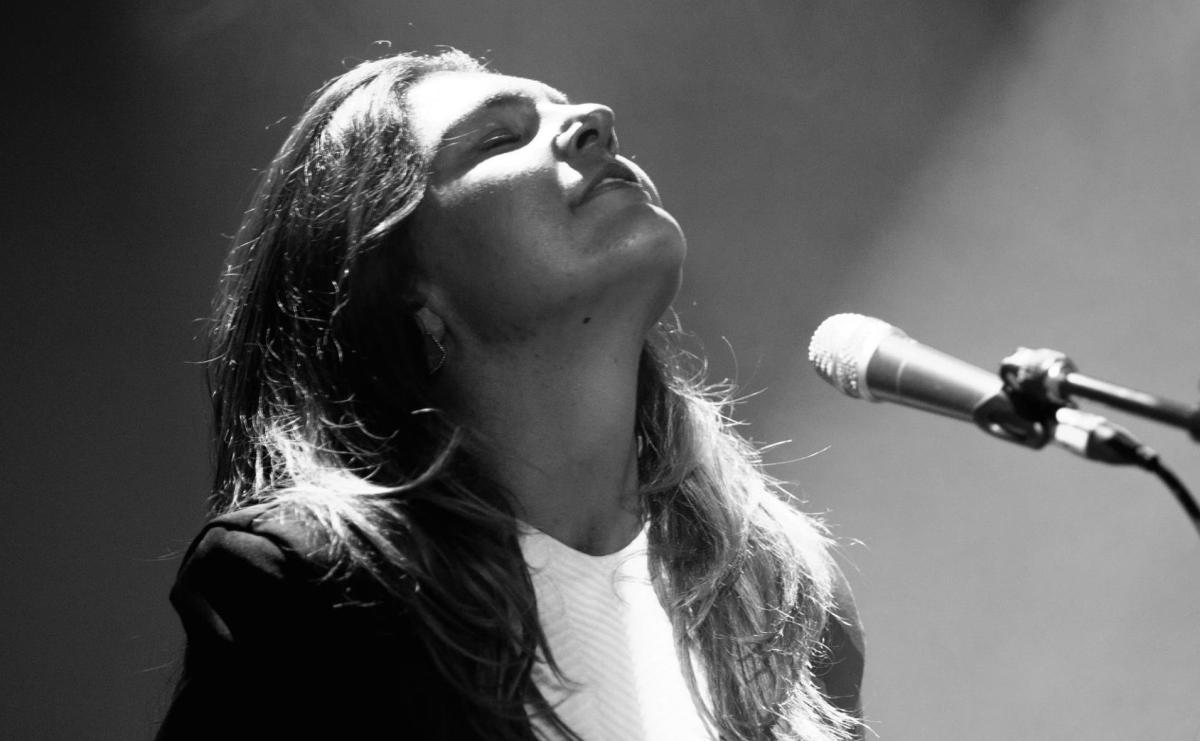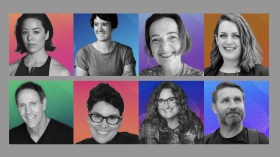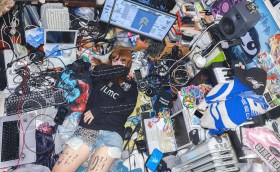At the recent Accessible All Areas music festival – curated by singer-songwriter Eliza Hull and produced by Isol-Aid – three out of the four disabled musicians who performed said that they had to be carried up onto a stage, due to venue access issues. This is just one example of the many barriers that disabled musicians can face when forging careers in the music industry.
The recent Making Live Music Accessible event, hosted by Accessible Arts, brought together music industry experts to discuss how we can make our music industry more inclusive for disabled people.
Chaired by Emily Collins (Managing Director, Music NSW), panelists included Eliza Hull, Alister Hill (Senior Producer, Contemporary Music, Sydney Opera House), Jane Slingo (Executive Producer, Electronic Music Conference) and myself, Morwenna Collett (consultant/disabled musician).
While access and inclusion have been the subject of increased discussion in other art forms (theatre, dance and visual arts), the music industry has lacked sector-specific conversations about how to address these issues.
‘Our industry needs to tackle these issues with more energy and direction,’ said Emily Collins. ‘There is a willingness to change … but people don’t know where to start.’
Potential barriers
The most obvious barriers experienced by people with disability are physical access to venues, but there can also be communication, socio-economic, social and attitudinal barriers. Many of us are conscious of the need for front-of-house access for our audiences, but it’s important to consider artist access too – can disabled musicians get backstage and can they then get onstage?
‘Not feeling like you can perform onstage automatically makes you feel unwelcome,’ said Eliza Hull.
Some solutions
So, what can we as an industry do to remove these barriers? A simple step is to ask artists (and audiences) if they have any access needs and build this into your standard processes.
Hull suggests artists use an access and inclusion rider, which is provided to venues and booking agents in the same way a hospitality rider might be provided. She also highlighted the need for venues to list their accessibility features on their websites, and think about the whole user journey, including online communications and promotion.
Read: On the precipice: theatre for the isolated audience
Alister Hill encouraged people to spend time talking to, artists. Jane Slingo suggested building awareness through education, with courses such as Accessible Arts’ Disability Confidence Training.
COVID19 impacts
No panel would be complete with a discussion around COVID-19. The recent online mini-music festival event Accessible All Areas included audio description, captioning and Auslan interpretation, and also involved short interviews with performers, sharing insights and encouraging change.
With the return to live performance, it’s going to be important that we don’t lose the accessibility which has been created through offering performances online.
Read: How artists with disability are coping with COVID-19
Great examples
Panelists shared examples of access and inclusion projects that they had been a part of or witnessed, and lessons learnt from sharing with each other.
Ability Fest, initiated by Dylan Alcott in 2018, is showing other festivals in Australia what is possible when it comes to access. Following in the footsteps of great international festivals such as Glastonbury, Ability Fest is addressing representation issues by putting disabled artists onstage. It also offers accessible parking, accessible viewing platforms, Auslan interpreters, chill-out spaces and grass matting.
There are also some great international music organisations doing good work in this space, which I was lucky enough to uncover on my recent Churchill Fellowship researching inclusive music programs, venues and festivals with actively engage disabled people.
Highlights included Attitude Is Everything, a UK–charity who have developed a venue and festival accreditation system, the Charter of Best Practice, to which over 200 music organisations across the UK are signed up.
On the classical front, the Bournemouth Symphony Orchestra’s Change Makers program has been a huge success. In addition to an ongoing series of organisational change activities, conductor James Rose, who identifies as disabled, was given professional development training and the opportunity to create and direct BSO Resound, a new chamber ensemble.
Where do I start?
So, as a music organisation, how do you know where to start if you want to become more inclusive? My Churchill Fellowship report offers five success factors to consider:
1. Get started: Focus on ‘achievable accessibility’ – where are the quick wins which you can make happen right now?
2. Research, listen and seek feedback: This is about doing your homework. Get to know your community and what they need; consult and pay disabled people to share their expertise with you
3. Improve culture and responsibility: Embed access in your organisational culture, make it part of the thinking around everything you do and employ disabled people.
4. Plan and improve: Include access in all your planning and budget templates; develop a disability action plan; collect data around your access work and use it to make improvements.
5. Connect and keep learning: Accessibility tools change rapidly, particularly in the tech space, so keep up to date by networking, upskilling and collaborating with others.
Resources
A number of helpful resources were shared throughout the Making Live Music Accessible panel discussion, with these being particularly useful:
- Building a musically inclusive future for artists, participants and audiences – elements and success factors (Morwenna’s Churchill Fellowship Report)
- DIY Access Guide (Attitude Is Everything)
- Resources (Accessible Arts)
- Melbourne Fringe Producers Guide to Access
- Inclusive and accessible event guidelines (City of Sydney)
- 7 inclusive principles for the arts during COVID19 (Produced by UK collective of Deaf and disabled artists #WeSallNotBeRemoved)
Thanks to support from Create NSW, I will also be publishing a series of music and disability specific resources and training materials over the coming months. Please get in touch with me to find out more: [email protected].






